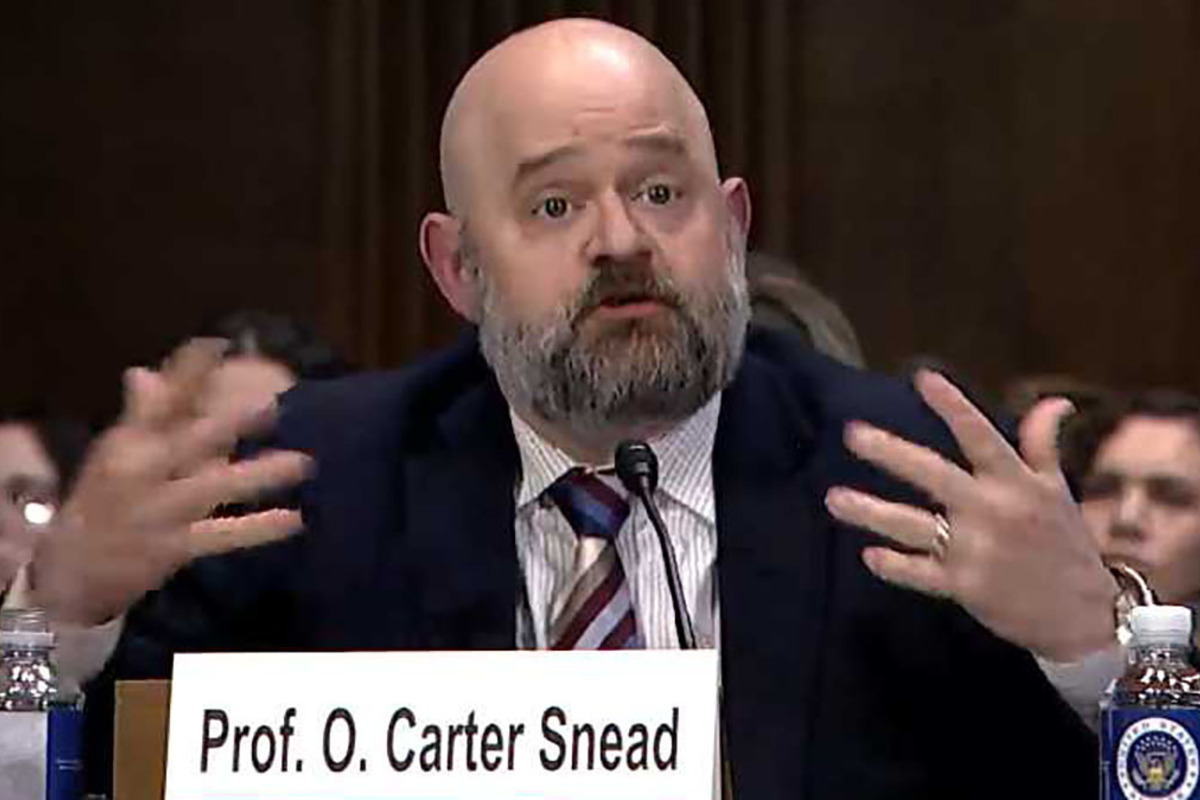

Notre Dame Law School
Director of the de Nicola Center for Ethics and Culture,
Professor of Law

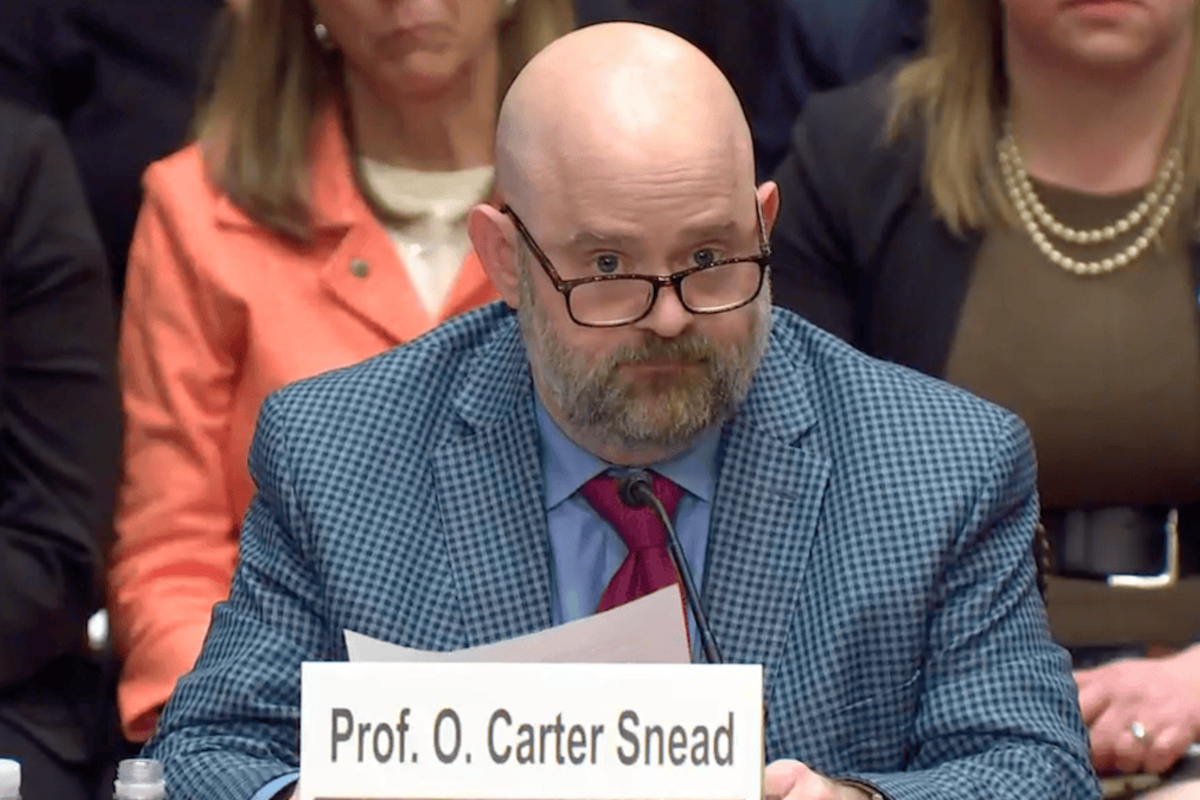
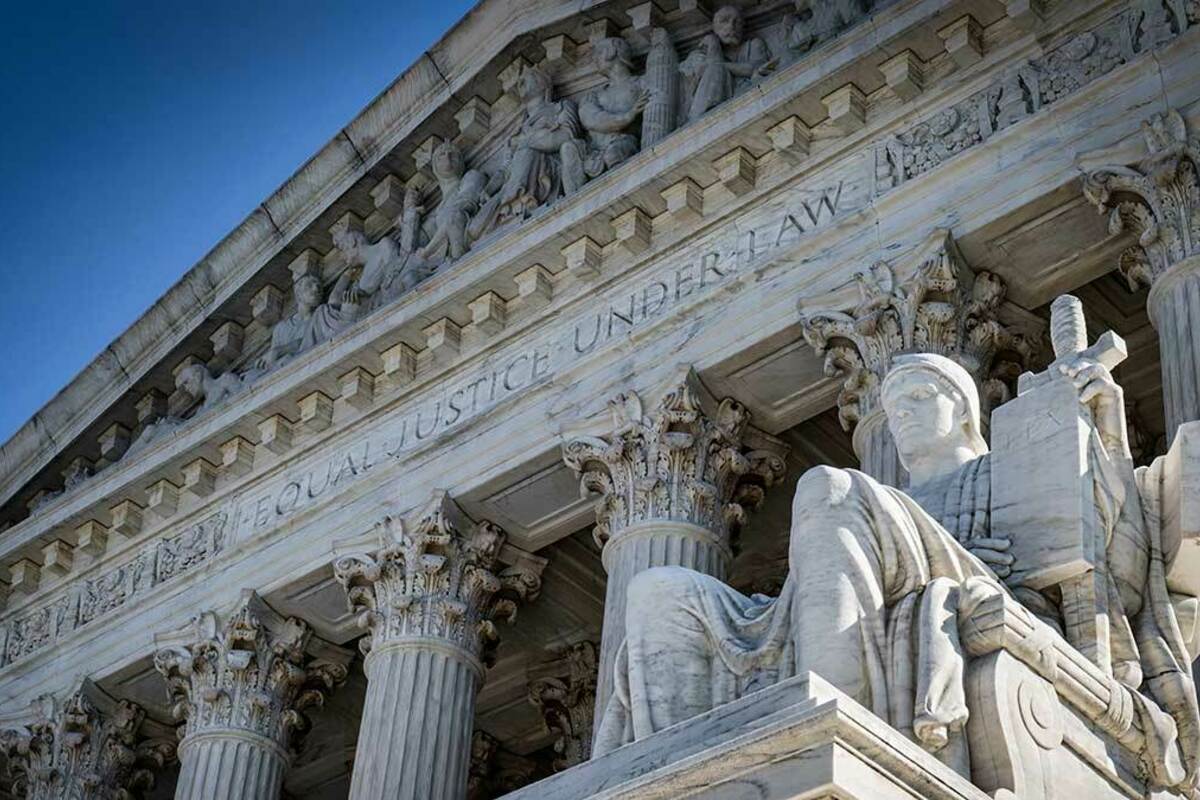

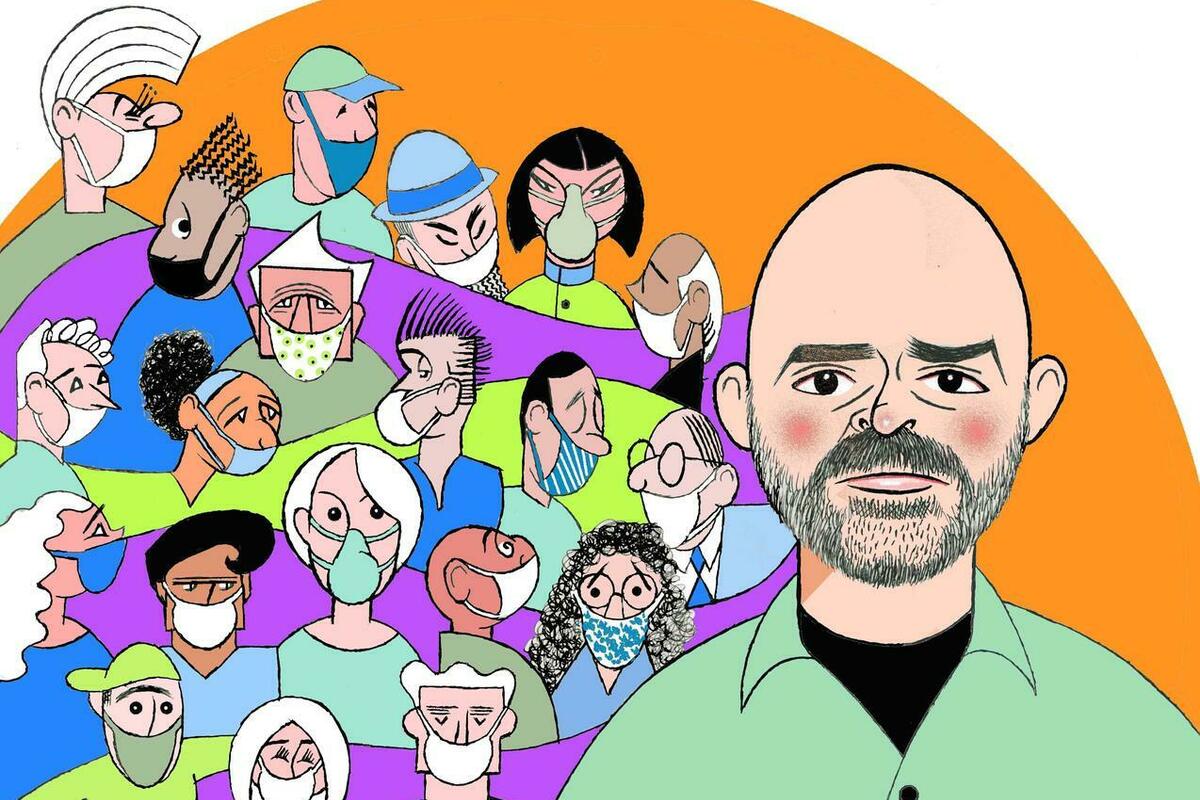
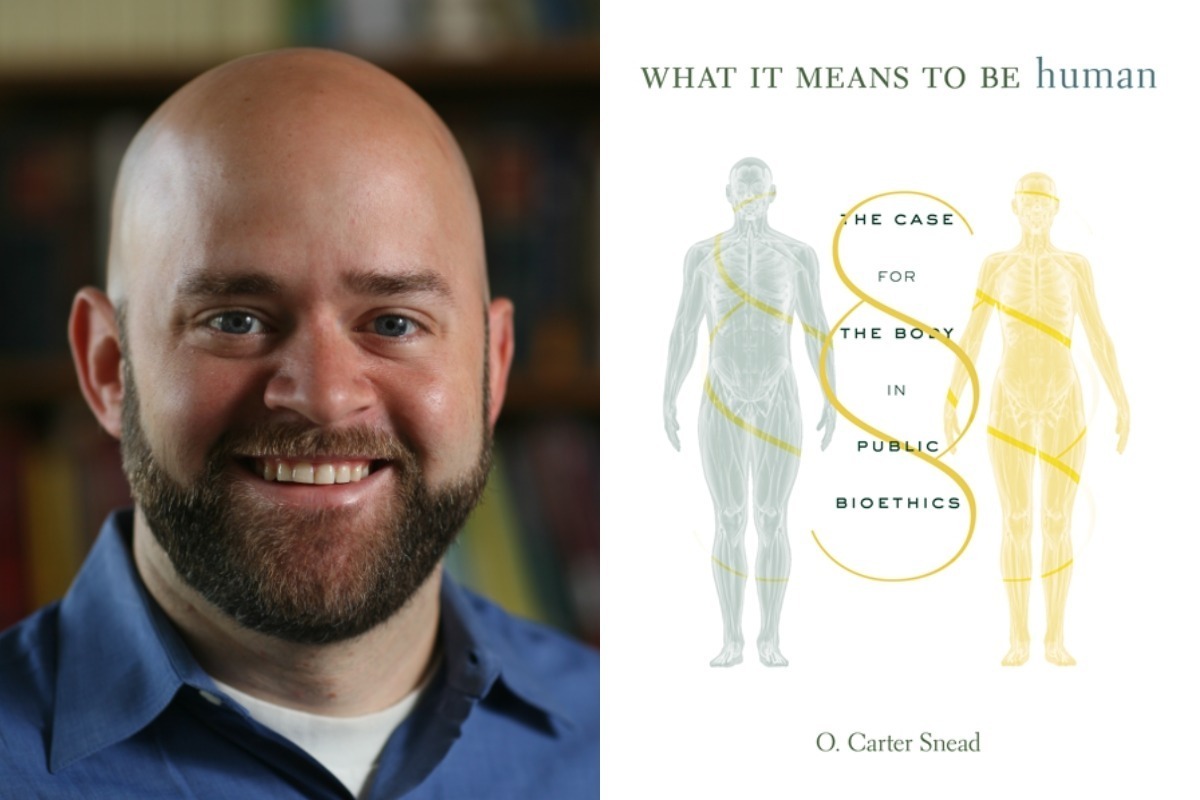
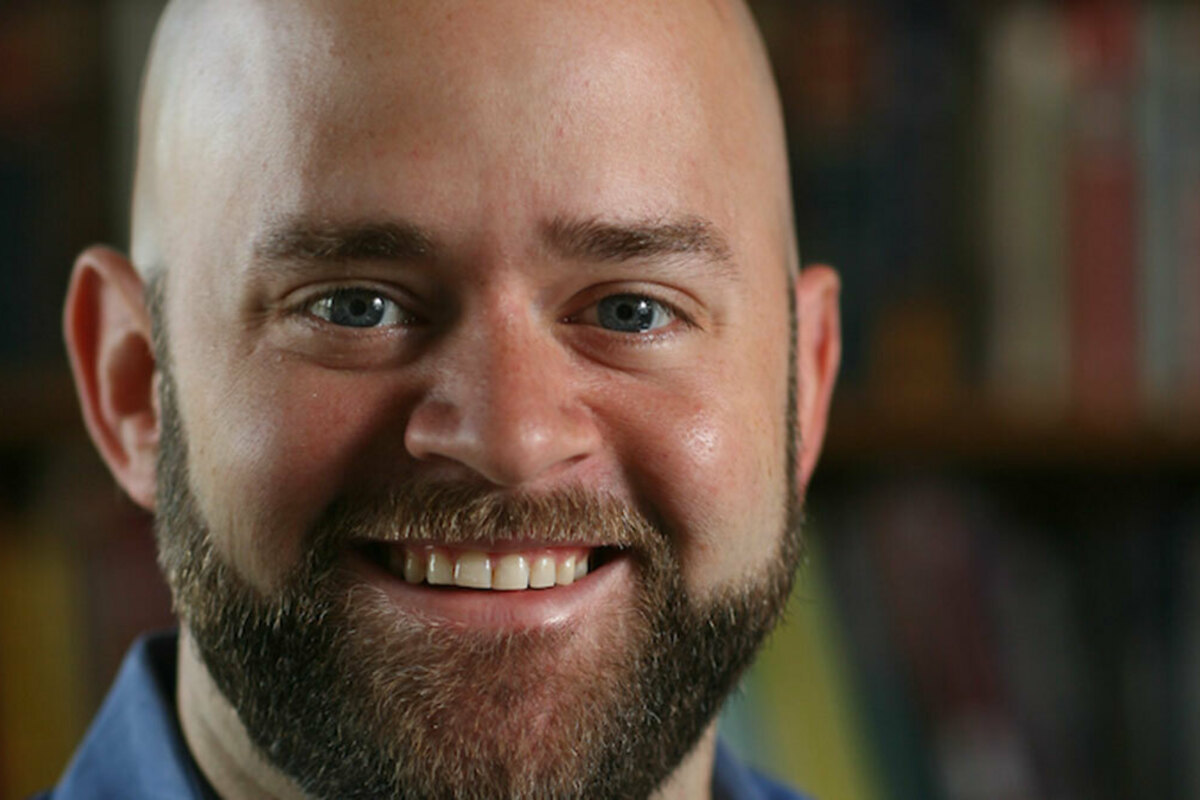


America
April 10, 2024
However, O. Carter Snead, director of the de Nicola Center for Ethics and Culture at the University of Notre Dame, told OSV News, “Nothing in the Dobbs decision — which President Trump celebrated — precludes the federal political branches from regulating abortion.”

The Atlantic
March 15, 2024
O. Carter Snead is a law professor at the University of Notre Dame and the author of What It Means to be Human: The Case for the Body in Public Bioethics.

Commonweal
December 11, 2023
Carter Snead is the Charles E. Rice Professor of Law at the University of Notre Dame.

OSV News
October 04, 2023
A holistic approach to supporting expecting and parenting mothers in difficult circumstances is the crux of the Women and Children First initiative at the de Nicola Center for Ethics and Culture at the University of Notre Dame in Notre Dame, Indiana.

OSV News
June 29, 2023
“The fundamental ethical (and public) question here is whether these ’embryoids’ are living human embryonic organisms that cannot develop throughout all the gestational stages merely because of temporary technical limitations, or are they just a laboratory artifact that cannot be rightly termed an organism,” said professor O. Carter Snead, director of the de Nicola Center for Ethics and Culture at the University of Notre Dame.

Our Sunday Visitor
June 27, 2023
“The fundamental ethical (and public) question here is whether these ’embryoids’ are living human embryonic organisms that cannot develop throughout all the gestational stages merely because of temporary technical limitations, or are they just a laboratory artifact that cannot be rightly termed an organism,” said professor O. Carter Snead, director of the de Nicola Center for Ethics and Culture at the University of Notre Dame.
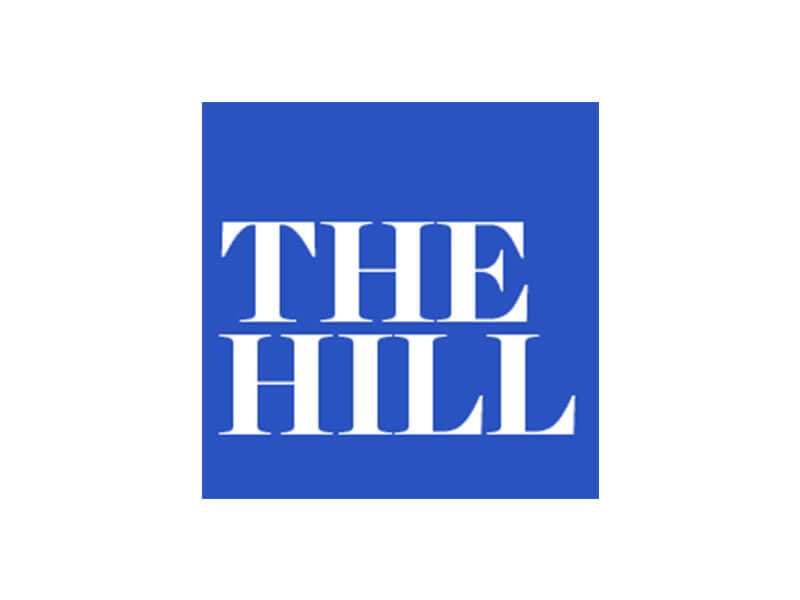
The Hill
June 26, 2023
O. Carter Snead is Professor of Law and Director of the de Nicola Center for Ethics and Culture at the University of Notre Dame and author of “What It Means to be Human: The Case for the Body in Public Bioethics.”

Politico
June 23, 2023
Opinion: ‘Our politics has yet to adapt to the needs of the moment’ by O. Carter Snead. Snead is professor of law and director of the de Nicola Center for Ethics and Culture at the University of Notre Dame, and author of What It Means to be Human: The Case for the Body in Public Bioethics (Harvard University Press 2020).

Our Sunday Visitor
March 14, 2023
In addition to Archbishop Gudziak, the 2023 event also featured O. Carter Snead, director of the de Nicola Center for Ethics and Culture, a professor of law and concurrent professor of political science at the University of Notre Dame, who called on Catholics to help build a culture of life and love post-Roe.

National Catholic Register
March 14, 2023
Catholic bioethicist Carter Snead, director of the de Nicola Center for Ethics and Culture at the University of Notre Dame, spoke about the continued threat of abortion to the unborn and mothers.

The Washington Post
October 04, 2022
In addition to Scully, the brief is co-written by two other prominent conservative thinkers — Notre Dame law professor O. Carter Snead, who is also director of the university’s de Nicola Center for Ethics and Culture, and journalist Mary Eberstadt, a senior research fellow at the Faith & Reason Institute.

Bloomberg
July 07, 2022
Keller Postman LLC; Ciresi Conlin LLP; Aylstock, Witkin, Kreis & Overholtz PLLC; Seeger Weiss LLP; Quinn Emmanuel Urquhart & Sullivan LLP; and O. Carter Snead of Notre Dame, Ind., submitted the appellate briefs for the plaintiffs.

Associated Press
May 13, 2022
Professor O. Carter Snead, who teaches law and political science at the University of Notre Dame, said via email that most Catholics engaging in anti-abortion activism “are not hard political partisans but rather people seeking to care for moms and babies by whatever means are available.”
We The People
Audio
May 12, 2022
The draft opinion in Dobbs overrules the precedents Roe v. Wade andPlanned Parenthood v. Casey, which hold that women have the constitutional right to seek pre-viability abortions. In this episode, professors Mary Ziegler of UC Davis Law School and O. Carter Snead of Notre Dame Law School join once again to unpack the constitutional reasoning in Justice Alito’s draft, and the implications for the future of abortion rights in America and the future of Court as an institution in the aftermath of the leaked opinion.

America
May 09, 2022
And most of all, I would want people to read What It Means to Be Human, by O. Carter Snead.

The New York Times
May 06, 2022
‘What It Means to Be Human: The Case for the Body in Public Bioethics,’ by O. Carter Snead.
The Miami Herald
May 05, 2022
If the “leaked” opinion is correct and the court is prepared to reverse both Roe v Wade and Casey v. Planned Parenthood, the court will finally correct two wrongly decided decisions. As University of Notre Dame law professor O. Carter Snead noted: “The court’s abortion jurisprudence has for decades imposed on the nation, without constitutional justification, an extreme, incoherent and deeply unjust regime pursuant to specious reasoning and constantly changing rules, standards and rationales.”

The Washington Post
May 05, 2022
O. Carter Snead is a law professor at the University of Notre Dame and author of “What It Means to Be Human: The Case for the Body in Public Bioethics.”
The Indiana Lawyer
May 04, 2022
In the face of what has been described as an “unprecedented” breach of confidentiality at the nation’s highest court, the University of Notre Dame on Tuesday convened a panel of U.S. Supreme Court scholars to talk through the potential ramifications of the leak of a draft opinion that could fundamentally alter the country’s abortion landscape.

WNDU
Video
May 03, 2022
At noon on May 3rd, a flash panel discussion held by Notre Dame’s Center for Citizenship and Constitutional Government discussed it all.

New York Daily News
May 02, 2022
“The only thing to say is that, if authentic, this leak is a shocking act of betrayal and a breathtaking breach of ethics,” wrote Notre Dame law professor O. Carter Snead, an expert in bioethics and Constitutional studies.

The Daily Beast
April 28, 2022
“The institutional legitimacy of the Court is at its apex when it acts as a court, interpreting the Constitution in light of its text, history, and tradition, regardless of the political consequences,” said Carter Snead, a professor of law at the University of Notre Dame (who made the same point in an amicus brief calling for the court to overturn Roe), in a text message to me on Thursday.

USA Today
December 04, 2021
"He was drawing the substantive distinction that the right to abortion is qualitatively different from these other rights," said O. Carter Snead, law professor at the University of Notre Dame.
WNYC
Audio
December 03, 2021
We wanted to understand what the Constitution says or doesn’t say about the reproductive rights that have been extended to individuals for the past 50 years, so we spoke with Carter Snead, Professor of Law at Notre Dame University, and Elizabeth Wydra, President of the Constitutional Accountability Center.

NPR
Audio
December 01, 2021
O. Carter Snead, law professor at Notre Dame, comments on the Dobbs v. Jackson Women's Health Organization Supreme Court case.
SCOTUSBlog
December 01, 2021
Professors Mary Ann Glendon and O. Carter Snead write that the court’s abortion precedent is “completely untethered” from the text, history, and tradition of the Constitution.

CNN
December 01, 2021
But O. Carter Snead, a Notre Dame Law School professor, believes the court would be repairing its institutional legitimacy by overruling Roe.

Catholic News Service
December 01, 2021
O. Carter Snead, law professor at the University of Notre Dame, similarly noted in a Nov. 29 statement the strong feelings in this Mississippi case and said that “despite the intense emotions” surrounding it,

NPR
Audio
December 01, 2021
NPR's Ari Shapiro talks with O. Carter Snead, law professor at Notre Dame, about the legal standing for anti-abortion arguments at the Supreme Court on Wednesday.

CNN
November 30, 2021
But O. Carter Snead, a Notre Dame Law School professor, believes the court would be repairing its institutional legitimacy by overruling Roe.
Constitution Center
Audio
November 25, 2021
Host Jeffrey Rosen is joined by Mary Ziegler, the Stearns Weaver Miller Professor at Florida State University College of Law and author of Abortion and the Law in America: A Legal History, Roe v. Wade to the Present, and O. Carter Snead, professor of law at Notre Dame Law School and director of the de Nicola Center for Ethics and Culture.

USA Today
October 06, 2021
Mary Ann Glendon and O. Carter Snead, professors of law at Harvard and Notre Dame universities, brilliantly argue the court should return abortion policy to the states to allow for a more harmonious human response to the challenges of an unplanned pregnancy.
National Affairs
September 21, 2021
O. CARTER SNEAD is professor of law at the Notre Dame Law School and director of the de Nicola Center for Ethics and Culture at the University of Notre Dame.

The Washington Post
September 06, 2021
O. Carter Snead is a law professor at the University of Notre Dame and author of “What It Means to be Human: The Case for the Body in Public Bioethics.”

Our Sunday Visitor
August 03, 2021
A brief filed by O. Carter Snead, law professor at the University of Notre Dame and director of the university’s Center for Ethics and Culture, and Mary Ann Glendon, former U.S. ambassador to the Holy See, said the Mississippi case “offers the cleanest opportunity since Roe v. Wade was decided in 1973 for the court to revisit its deeply flawed and harmful jurisprudence,” or theory of law, on abortion decisions.

The Wall Street Journal
June 20, 2021
A marvelous review in these pages last November inspired me to read a new book by O. Carter Snead, “What It Means to Be Human: The Case for the Body in Human Bioethics.”

Newsweek
May 20, 2021
O. Carter Snead, professor of law and director of the De Nicola Center for Ethics and Culture, University of Notre Dame.

The Wall Street Journal
May 17, 2021
University of Notre Dame law professor Carter Snead, a member of University Faculty for Life, said he hoped the court would “finally end its failed and constitutionally unjustified experiment as the nation’s ad hoc abortion regulatory body of last resort.”

The New York Times
March 06, 2021
The Catholic scholars — including Ryan T. Anderson, president of the Ethics and Public Policy Center; Prof. Robert P. George of Princeton University; and Prof. O. Carter Snead of the University of Notre Dame — said in a statement that the cell line used for scientific research does not contain the remains of any human being.

The Washington Post
March 05, 2021
The signers included Ryan T. Anderson, president of the Ethics and Public Policy Center; Princeton University law professor Robert P. George; and O. Carter Snead, director of the University of Notre Dame’s de Nicola Center for Ethics and Culture.
The New Atlantis
January 25, 2021
Orlando C. Snead, a professor of law and the director of the de Nicola Center for Ethics and Culture at the University of Notre Dame, was general counsel to the Kass commission from 2001 to 2003, and his new book, What It Means to Be Human, can be read as a defense of the council against this sectarian charge.